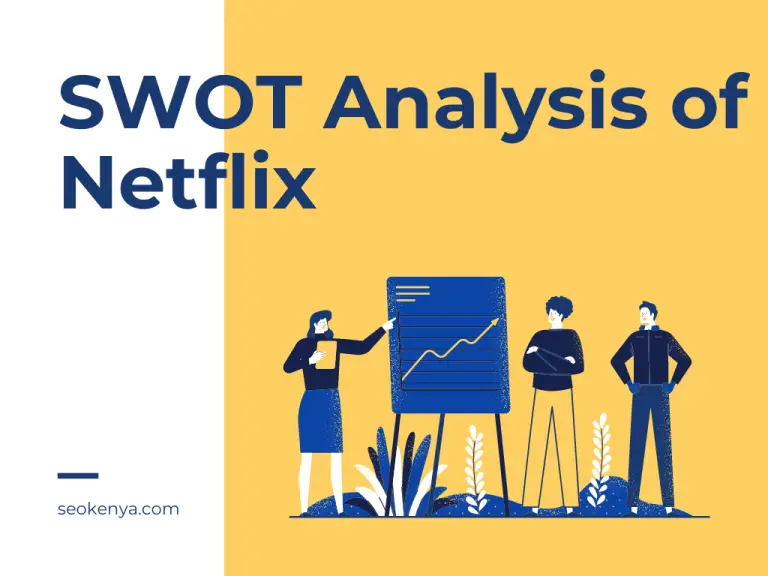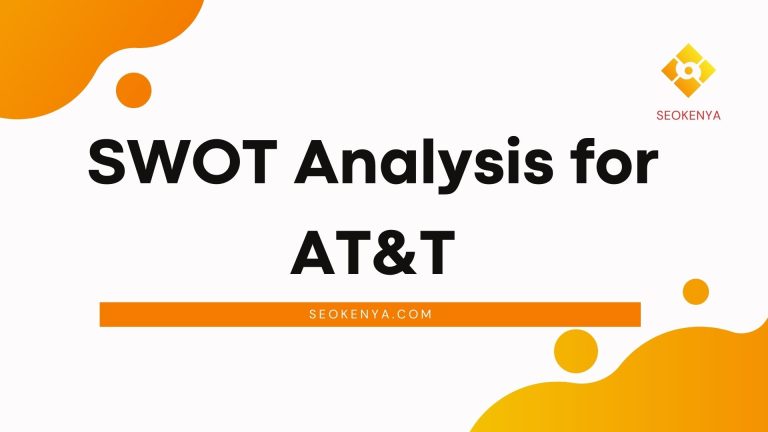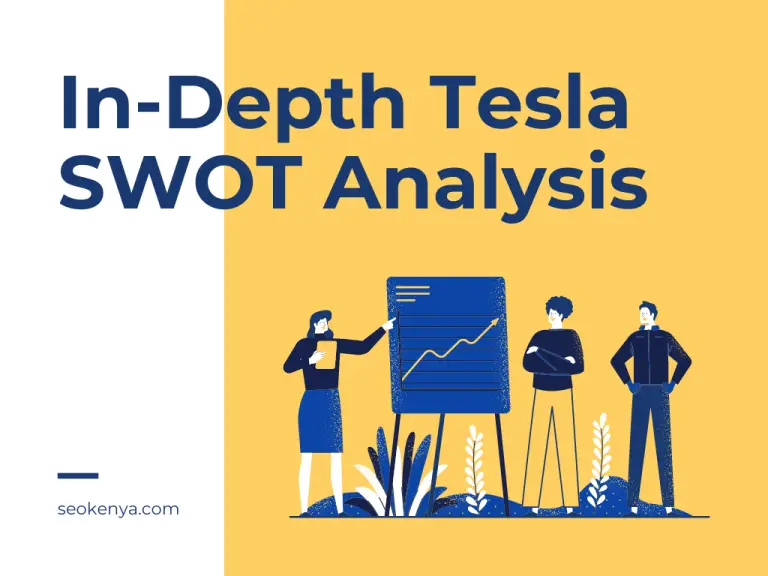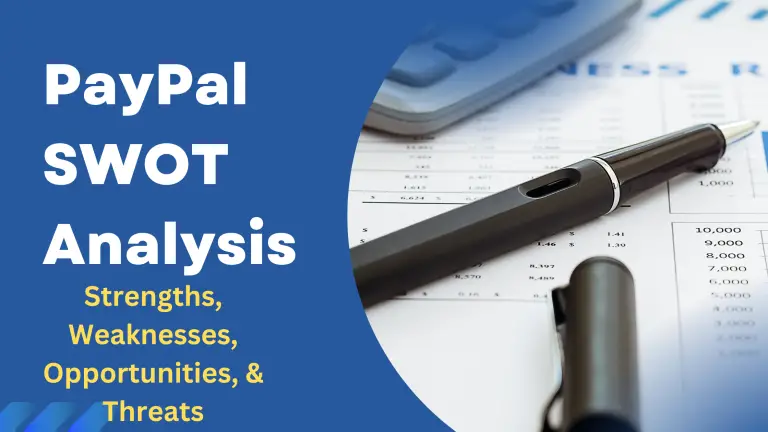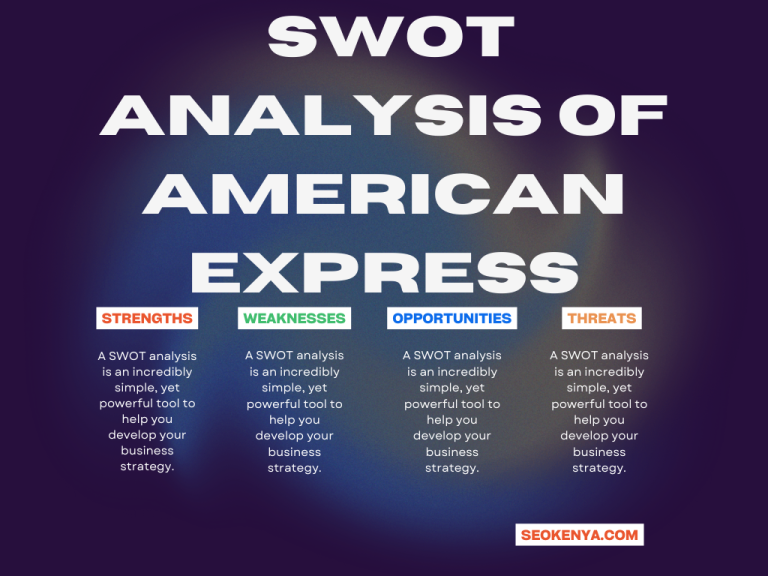SWOT Analysis of JPMorgan Chase: Strengths, Weaknesses, Opportunities, and Threats
JPMorgan Chase is one of the largest and most respected financial institutions in the world. With a long history of innovation and market leadership, the company has established itself as a dominant player in the financial services sector.
JPMorgan Chase Company Profile In A Table
Here is a company profile for JPMorgan Chase in a table format:
| CATEGORY | DETAILS |
| Company Name | JPMorgan Chase & Co. |
| Ticker Symbol | JPM |
| Exchange | New York Stock Exchange (NYSE) |
| Sector | Financial Services |
| Industry | Banking |
| Headquarters | New York City, New York, U.S. |
| Founded | 2000 (from the merger of J.P. Morgan & Co. and Chase Manhattan Corporation) |
| CEO | Jamie Dimon |
| Number of Employees | ~240,000 (as of 2022) |
| Products/Services | Investment banking, asset management, private banking, commercial banking, consumer banking, treasury services |
| Total Assets | $3.67 trillion (as of December 31, 2022) |
| Market Capitalization | ~$390 billion (as of March 2023) |
JPMorgan Chase is one of the largest banking institutions in the United States and a major player in the global financial services industry.
It provides services across consumer banking, investment banking, asset management, commercial banking, and more through its various divisions and subsidiaries.
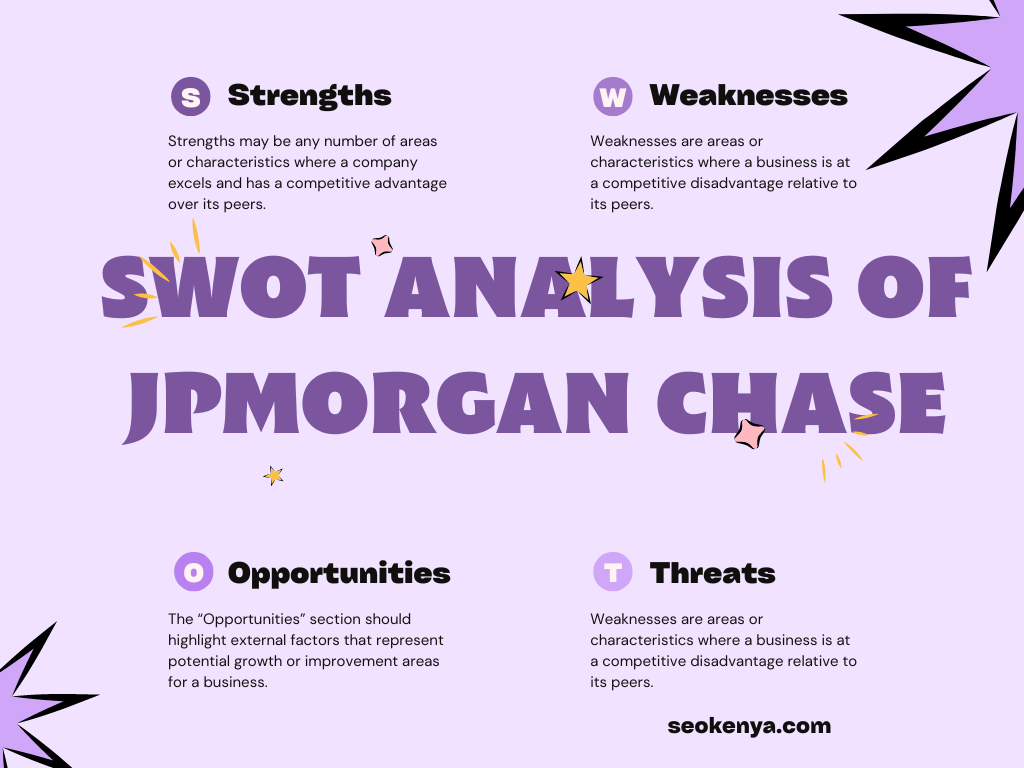
In this article, we will perform a SWOT analysis of JPMorgan Chase to evaluate its strengths, weaknesses, opportunities, and threats and provide insights into how the company can achieve sustainable growth and maintain its competitive advantage.
Strengths of JPMorgan Chase
- Strong Brand Recognition: JPMorgan Chase has a well-established brand that is recognized globally for its quality and reliability. The company has been consistently ranked among the world’s most valuable brands, reflecting its reputation for excellence and customer trust.
- Diversified Business Portfolio: JPMorgan Chase has a diverse business portfolio that spans multiple segments of the financial services sector, including investment banking, commercial banking, wealth management, and asset management. This diversification allows the company to mitigate the impact of economic downturns in any one segment and maintain stable earnings.
- Extensive Global Network: JPMorgan Chase has a global network that spans multiple countries and regions. The company has a significant presence in Europe, Asia, and the Americas, giving it a competitive advantage in terms of its ability to serve clients and access local markets.
- Strong Capital Position: JPMorgan Chase has a strong capital position that enables it to weather economic turbulence and invest in growth initiatives. The company has a Tier 1 capital ratio of approximately 13%, well above the regulatory minimum, which provides a cushion for potential losses.
Weaknesses of JPMorgan Chase
- Reputation for Risky Practices: Despite its reputation for quality and reliability, JPMorgan Chase has faced criticism for its role in the financial crisis and has been subject to a number of regulatory penalties and settlements. This has led to a perception that the company engages in risky practices and undermines customer trust.
- Dependence on Wholesale Funding: JPMorgan Chase relies heavily on wholesale funding to finance its operations, which makes it vulnerable to disruptions in the funding markets. This dependence can increase the company’s cost of capital and impact its ability to maintain stable earnings.
- Regulatory Scrutiny: JP Morgan Chase is subject to ongoing regulatory scrutiny, which can be time-consuming and expensive. This can limit the company’s ability to pursue new opportunities and innovations.
- Complexity of Business Operations: The complexity of JP Morgan Chase’s business operations can make it difficult for the company to manage risk effectively and respond quickly to changing market conditions.
- Limited Market Share in Emerging Markets: Despite its global presence, JPMorgan Chase has limited market share in emerging markets, particularly in Asia. This leaves the company vulnerable to competition from local players and limits its potential for growth in these regions.
Opportunities of JPMorgan Chase
- Growth in Digital Banking: The shift towards digital banking presents a significant growth opportunity for JPMorgan Chase. The company has invested heavily in digital technologies to enhance the customer experience and streamline its operations, positioning it well to capture market share in this growing segment.
- Expansion into New Markets: JPMorgan Chase has the opportunity to expand into new markets, particularly in emerging economies where there is significant demand for financial services. This could increase the company’s customer base, revenue, and market share.
- Increased Demand for Wealth Management Services: With the growth of the global middle class, there is an increasing demand for wealth management services, particularly in Asia. JPMorgan Chase has a strong presence in this segment and could capture a significant share of this growing market.
- Strategic Partnerships: JP Morgan Chase has the opportunity to form strategic partnerships with other companies, such as technology companies and financial institutions, to expand its product offerings and market reach.
Threats of JPMorgan Chase
- Increased Regulation: JPMorgan Chase operates in a highly regulated industry, and there is a growing trend towards increased regulation, particularly in the wake of the financial crisis. This could increase the company’s compliance costs and limit its ability to engage in certain business activities.
- Cybersecurity Risks: JP Morgan Chase is vulnerable to cybersecurity risks, which can impact its reputation and financial performance.
- Competition from Fintech Companies: JPMorgan Chase faces competition from fintech companies that are disrupting the traditional financial services sector. These companies have innovative business models and technologies that are attracting customers and posing a threat to the established players in the industry.
- Economic Uncertainty: Economic uncertainty is a constant threat to the financial services sector, as changes in the economic environment can impact consumer spending, investment activity, and overall market conditions. JPMorgan Chase is exposed to these risks, and must be prepared to respond effectively to maintain its financial stability and growth.
Recommendations
- Invest in Reputation Management: JPMorgan Chase should invest in reputation management initiatives to improve its public image and regain customer trust. This could include increased transparency, responsible corporate practices, and effective communication strategies.
- Diversify Funding Sources: To reduce its dependence on wholesale funding, JPMorgan Chase should diversify its funding sources and explore alternative financing options, such as customer deposits and other forms of debt financing.
- Expand into Emerging Markets: JPMorgan Chase should take advantage of its opportunity to expand into emerging markets, where there is significant growth potential. This could include establishing local partnerships, acquiring local banks, or launching new operations.
- Embrace Digital Technologies: JPMorgan Chase should continue to embrace digital technologies to improve its operational efficiency, customer experience, and competitiveness. This could include investing in new platforms, expanding its mobile banking offerings, and leveraging artificial intelligence and machine learning technologies.
Conclusion
JPMorgan Chase is a well-established financial institution with a strong brand, diverse business portfolio, and extensive global network.
Despite its strengths, the company faces challenges such as reputation risk, dependence on wholesale funding, and limited market share in emerging markets.
By addressing these weaknesses and taking advantage of opportunities such as growth in digital banking and expansion into new markets, JPMorgan Chase can maintain its competitive advantage and achieve sustainable growth.
